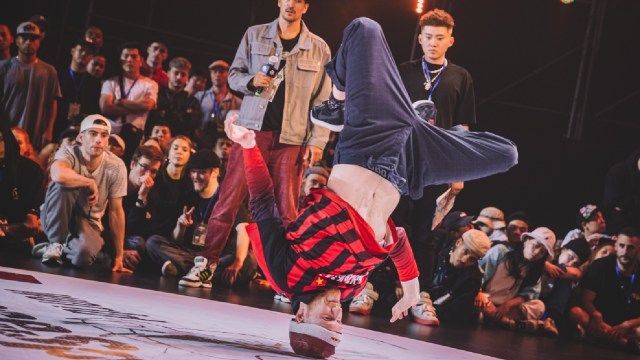Olympics in Paris, 2024: Breaking smashes down barriers in first-ever Games: The new sport on the schedule connects with a broad spectrum of people worldwide and is cheap to stage, leaving no “white elephants.”

Over the course of two days on August 9 and 10, 32 breakers—16 women and 16 men—will compete in the famous Place de la Concorde, a Parisian public area that is being converted into an outdoor stadium for the Olympics. The World DanceSport Federation provided.
From the perspective of a breakdancer, the Statue of Liberty might represent the first “freeze”—a sudden stop in the middle of an intense dance routine—that ever occurred, travelling from France to the United States.
Despite the fact that the Bronx was the “OG” hub of breakdancing in the 1970s, Americans decided not to include the sport in their Olympic programme for Los Angeles 2028.
When organising their first Olympic Games in 2024, Paris’s notoriously free-spirited banlieues (suburbs) did not overlook their beloved past as the second-largest hip-hop market in the world. The biggest platform in sports will host Breaking’s debut in France. While hip hop and graffiti gained popularity in the transatlantic block parties of north New York, Europe has quietly fostered its own Breaking Base, popularising a once underground subculture.
Paris has taken the lead in bringing the Olympics directly into the streets, freeing sport from the stifling confines of stadiums. At the end of the Champs Elysees, Place de la Concorde, a well-liked public area, will be transformed into an urban, low-key Paris Games site that will accommodate other casual sports, including 3×3 basketball, skating, and BMX freestyle.
The next morning, the temporary staging equipment will be carefully packed away, allowing Parisians to resume their daily routines. The sport will leave behind none of the meaningless “white elephants” associated with the Olympics, according to sociologist Andrew Zimbalist.
France is a country in historical transition, with a restless youth population that is particularly irritated by excessive and extravagant spending. In most host cities, the Olympics are pretty much derided for being both, with their crusty profligate ways. However, breaking free from all elitist constraints might provide a well-liked, tiny area where the city congregates.
According to Jean-Laurent Bourquin, a former senior advisor for the World Dance Sport Federation, “Breaking is not only gender-balanced, youthful, and urban, but it is also flexible and sustainable in that it can essentially be organised anywhere, without the need for costly new infrastructure, equipment, etc.” Bourquin previously spoke with the Indian Express. In reality, the majority of B-boys and B-girls are accustomed to performing without cribs on surfaces like pavement, cardboard, plastic, and wood. “Incorporating Breaking would ultimately contribute to the 2024 Games’ closer ties to Parisian communities and its youth population,” he continued.






























